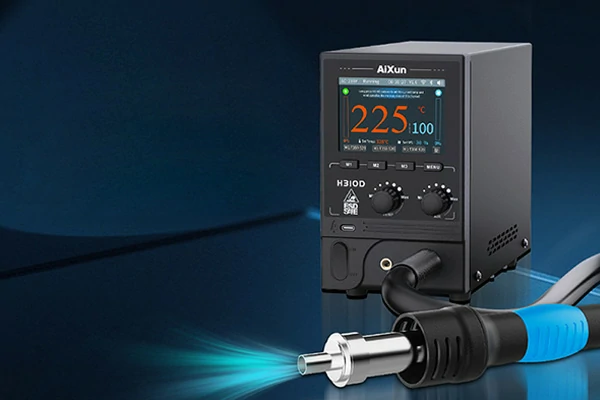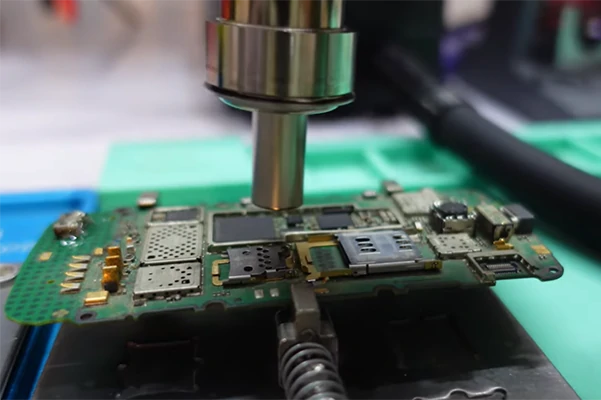
Are you into electronics repair or DIY projects involving circuitry? If so, then you've likely encountered the need for precise soldering and desoldering of electronic components. In the world of electronics work, having the right tools can make all the difference, and one such tool that stands out is the hot air soldering station. In this comprehensive guide, we'll delve into everything you need to know about hot air soldering stations, from understanding their functionality to mastering their use in soldering, desoldering, and rework tasks.

A hot air soldering station is a versatile tool used in electronics repair and assembly. It consists of a heating element and a nozzle that emits a controlled stream of hot air. This device is primarily employed for soldering and desoldering components on circuit boards, as well as for various rework tasks.
If you work with electronics regularly, especially in tasks involving soldering, desoldering, or reworking circuit boards, then investing in a hot air rework station can greatly enhance your efficiency and precision. It offers precise temperature control and airflow, making it ideal for delicate electronic components and intricate soldering tasks.
Hot air soldering typically operates within a temperature range of 100°C to 500°C (212°F to 932°F), depending on the specific application and the type of solder being used. It's crucial to adjust the temperature according to the requirements of the components being soldered to prevent damage or overheating.
A soldering station works by heating solder to its melting point and then using it to join two metal surfaces, such as components on a circuit board. In the case of a hot air soldering station, the hot air stream softens the solder, allowing it to flow and create a strong bond between the components.

Using a hot air station involves several steps:
A. Set the desired temperature and airflow on the station.
B. Position the nozzle at the desired angle and distance from the component to be soldered.
C. Apply the hot air to the area for the specified duration, allowing the solder to melt and form a connection.
D. Remove the hot air and allow the solder to cool and solidify before moving onto the next component.
For desoldering tasks, the temperature of a hot air station typically ranges from 250°C to 450°C (482°F to 842°F). This temperature range is sufficient to melt and remove solder from electronic components without damaging them. Adjust the temperature based on the size of the component and the amount of solder to be removed, ensuring precise and controlled desoldering operations.
When it comes to smart hot air soldering stations, AiXun emerges as a leading brand known for its innovation and quality. Offering advanced features like precise temperature control and internet technology, AiXun stations are favored by hobbyists and professionals alike for their efficiency and accuracy. With a commitment to customer satisfaction, AiXun ensures reliable support for users tackling intricate electronics repairs or DIY projects
Hot air soldering stations are indispensable tools for anyone involved in electronics repair, assembly, or DIY projects. With their precise temperature control, adjustable airflow, and versatile applications, they offer a level of precision and efficiency that traditional soldering irons simply can't match. By understanding how these stations work and mastering their use, you can tackle even the most intricate soldering, desoldering, and rework tasks with confidence.
 WhatsApp
WhatsApp